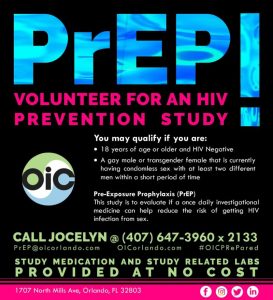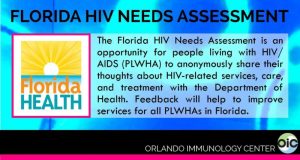What Is Hepatitis?
- What is hepatitis?
- Are there different types of hepatitis?
- What are the symptoms of hepatitis?
- How is hepatitis treated?
Hepatitis is a common liver condition that affects millions of Americans. The condition can be contracted from a wide range of causes, including viruses, alcohol use, drugs, or certain medical disorders.
Out of the millions of Americans living with this disease, many may not even be aware of their infection. Although sometimes appearing without symptoms, hepatitis can lead to serious liver disease, cancer, or even death, if left untreated.
Due to the risks involved, early diagnosis is critical for patients, offering potentially life-saving treatments to control their symptoms.
In this article, we’ll discuss the different types of hepatitis, what treatment options are available, and how individuals can adjust to living with this disease.

What Is Hepatitis?
Hepatitis is chronic inflammation of the liver. The liver is a vital organ that performs numerous critical functions, such as:
- Bile production
- Breaking down carbohydrates, fats, and proteins
- Enzyme activation
- Excreting bilirubin, cholesterol, hormones, and medications
- Glycogen, minerals, and vitamins storage
- Helping with blood clotting and blood proteins
- Filtering bodily toxins
All these functions are essential for your body, allowing your body to filter out toxins while circulating beneficial nutrients and hormones that keep you healthy.
However, inflammation or damage to the liver, such as hepatitis, can interrupt these functions, making it harder for the body to process nutrients and recover from illness.

Are There Different Types of Hepatitis?
There are five primary types of viral hepatitis, classified as A, B, C, D, and E. In the United States, the most common types of hepatitis are A, B, and C.
Hepatitis A is spread through a viral infection, typically through contact with another infected person. It causes fatigue, jaundice, nausea, and stomach pain, which can last up to two months. Fortunately, hepatitis A can be prevented with a vaccine.
Hepatitis B is found in the blood, semen, or other bodily fluids of infected people. The virus can spread through sexual contact, sharing needles, or even from a mother to her baby during birth. Many people who contract hepatitis B are asymptomatic. However, if symptoms do occur, hepatitis B causes fatigue, jaundice, nausea, poor appetite, and stomach pain.
Hepatitis C is spread through the blood of an infected person. The majority of cases today are caused by sharing needles or other paraphernalia used to inject drugs. Hepatitis C can either be a short- or long-term chronic illness. The chronic form of the disease can cause serious and life-threatening illnesses such as liver cancer or cirrhosis. There is no vaccine for this disease, but medication such as Harvoni, Olysio, Ribavirin, and Viekira Pak can help treat symptoms and prevent transmission.
Hepatitis D only infects people already carrying the hepatitis B virus. It is transmitted by blood and bodily fluids and can cause severe illness that can lead to serious liver damage and death. However, it can be prevented with the vaccine that also prevents hepatitis B.
Hepatitis E is transmitted through the stool of an infected person. It can spread when a microscopic amount is ingested, a problem in developing countries with an unsafe drinking water supply. In the U.S., the disease can be transmitted through raw or undercooked pork, shellfish, venison, or wild boar meat. Many people have no symptoms of hepatitis E. In cases where symptoms manifest, they can include fatigue, jaundice, nausea, poor appetite, and stomach pain. There is no specific antiviral medication to treat or cure this disease.

What Are the Symptoms of Hepatitis?
Depending on the type of hepatitis and the health of the infected person, symptoms may vary greatly. However, one of the most common symptoms of hepatitis is fatigue.
In many cases, patients may experience overall feelings of weakness and lack of energy, which can be debilitating. Additionally, patients may experience loss of appetite, nausea, and vomiting. These symptoms can lead to weight loss and malnutrition if left untreated.
Hepatitis can also cause jaundice, a condition in which the skin and whites of the eyes become yellow. This occurs when the liver is unable to properly filter bilirubin, a waste product produced by the breakdown of red blood cells. Other symptoms of hepatitis may include dark urine, pale stools, and abdominal pain.
In some cases, patients with hepatitis may not experience symptoms at all. This is particularly true in cases of chronic hepatitis, which can go undetected for years. For this reason alone, patients should receive regular blood tests to screen for the disease, especially if you are at risk due to factors such as intravenous drug use or unprotected sex.
It is also important to recognize the symptoms of hepatitis early on, as early detection and treatment can prevent serious complications such as liver failure and liver cancer.
Overall, the symptoms of hepatitis can be varied and may not always be obvious. If you suspect that you may have hepatitis, it is important to seek medical attention immediately to receive a proper diagnosis and treatment.

How Is Hepatitis Treated?
All types of hepatitis can be treated, but only hepatitis A and C can be cured. In rare cases, people with hepatitis B may recover without long-term liver damage, but some may develop liver diseases, including cirrhosis, liver cancer, or liver failure. Hepatitis D can be prevented with a vaccine that also prevents hepatitis B, while no specific antiviral medication exists to treat or cure hepatitis E.
Hepatitis C is the most common form of the disease in the United States and is treatable with antiviral medications.
Thankfully, up to 25% of patients with acute hepatitis C may also recover without treatment—however, the remaining 75-85% of patients will develop a chronic infection that can lead to liver damage, cancer, and liver failure. Additionally, many people may not experience noticeable symptoms, making the infection difficult to diagnose and easier to spread.
To diagnose viral hepatitis, doctors typically conduct a physical exam and may order a sonogram or CAT scan along with a liver biopsy to confirm the diagnosis. Symptoms of the hepatitis infection may include clay-colored or pale stools, dark urine, fatigue, loss of appetite, nausea, low-grade fever, jaundice, or the yellowing of skin and eyes, and stomach pain. If you experience any of these symptoms, see your doctor for a blood test.
Over the past few years, excellent treatments have been developed for both hepatitis B and C, and researchers continue to work hard to develop new and better treatments.
The Orlando Immunology Center is committed to providing the best treatments to combat hepatitis and other diseases in collaboration with primary and specialty physicians.
Contact us to find out how we can help.
More Articles
Dr. DeJesus Recognized by Orlando Magazine
For the 5th consecutive year, Dr. DeJesus has been recognized by his peers in Orlando Magazine for his work as medical director at Orlando Immunology Center. Dr. DeJesus is a graduate from the University of Puerto Rico, School of Medicine. He completed his Internal Medicine training and Infectious Disease fellowship at the Medical College of…
Read MoreJoin OIC at the 2015 AIDS Walk Orlando
Orlando Immunology Center is pleased to announce that we will again be sponsoring a team at this year’s 2015 AIDS Walk Orlando. If you are interested in joining our team or donating to this worthwhile cause, please let us know. Saturday, March 28, 2015 In Florida, 15% of all new HIV infections reported among females…
Read MoreOIC Wins Wave Award for Favorite Local Healthcare Professional
The Orlando Immunology Center (OIC) announced today they have received the Central Florida/Orlando 2015 Watermark Awards for Variety and Excellence (WAVE) Award for favorite local healthcare professional. “We see this as a huge honor and will continue to do everything in our power to help patients from all walks of life be healthy, happy and…
Read MoreBig Gay Brunch
In conjunction with Come Out with Pride 2016, Big Gay Brunch presented by Orlando Immunology Center, will feature an amazing brunch spread, bottomless mimosas and a Bloody Mary bar, entertainment and special surprise performances. Eat, drink and come out with pride! Come join us and get your tickets today!! OUR TEAM REQUEST AN APPOINTMENT
Read MoreNew PrEP Study
New PrEP Study 5/19/17 UPDATE – This is an ongoing study but enrollment has closed. Orlando Immunology Center is excited to announce a new study for Pre-Exposure Prophylaxis (PrEP). Pre-Exposure Prophylaxis (PrEP) This study is to evaluate if a once daily investigational medicine can help reduce the risk of HIV infection from sex. You may qualify…
Read More8 Tips to Help Medically Prepare For a Hurricane
Here are 8 tips to help medically prepare for a hurricane. Hurricanes can be incredibly destructive bringing lots of wind and rain over an extended period of time. Orlando Immunology Center wants to ensure that you are medically prepared in the event Central Florida finds itself in the path of one of these major storms.…
Read MoreFlorida HIV Needs Assessment
What is the Florida HIV Needs Assessment? The Florida HIV Needs Assessment is a survey conducted by the Florida Department of Health (DOH). The survey asks people living with HIV in Florida questions about their healthcare. It only takes about 5 minutes and is completely anonymous. It is an opportunity for People Living With HIV/AIDS (PLWHA) to share their…
Read More2017 HIV MEDICATION GUIDE
Here is POZ Magazines 2017 HIV Medication Guide for quick reference to HIV medication options. We’ve come a long way in the treatment of HIV. Today, there are many safe and effective drugs on the market that are easy to take and have fewer side effects. It’s very important to get onto treatment as soon…
Read MoreReports: Publix Denying Employees Access to HIV Prevention PrEP
Multiple sources are claiming that Publix is denying employees access to the HIV prevention regimen PrEP (Pre-Exposure Prophylaxis). The PrEP regimen includes regular doctor visits, labs, HIV prevention education and taking 1 pill once a day. It can be up to 99% effective at preventing HIV transmission and is recommended by the Center for Disease…
Read MorePublix Reverses Course; Covers PrEP
In an unexpected but welcomed move, Publix reverses course; covers PrEP. Less than 24 hours after Representative Carlos Guillermo Smith met with Publix officials regarding their controversial decision to not cover PrEP (Pre-Exposure Prophylaxis) in their insurance, Publix is reversing course and will expand coverage to include PrEP. Publix made the announcement by responding to…
Read MoreOrlando Advocates Raise HIV Awareness
Orlando advocates raise HIV awareness through a variety of new, groundbreaking projects. National Black HIV AIDS Awareness Day (NBHAAD) February 7th brings into sharp focus the importance of these pioneering approaches to address the HIV epidemic in Central Florida. NBHAAD is a national HIV testing and treatment community mobilization initiative targeted at Blacks in the…
Read MoreSTD Awareness Month 2018
OIC is excited to be joining with the CDC and other national organizations to be supporting STD Awareness Month 2018 with this year’s theme: Treat Me Right. The CDC created STD Awareness Month in April to raise awareness about STDs and increase education, prevention, testing and treatment in the community. STDs are at a record high across the…
Read MoreFree HIV Testing During Gay Days 2018
Free HIV testing during Gay Days – make it part of your celebration! It serves as an important reminder that we can have fun and know our status. Here’s a quick breakdown for locations and times for free HIV testing during Gay Days. Doubletree Hotel – 10100 International Drive, Orlando Florida – Citrus Room A Thursday…
Read More










